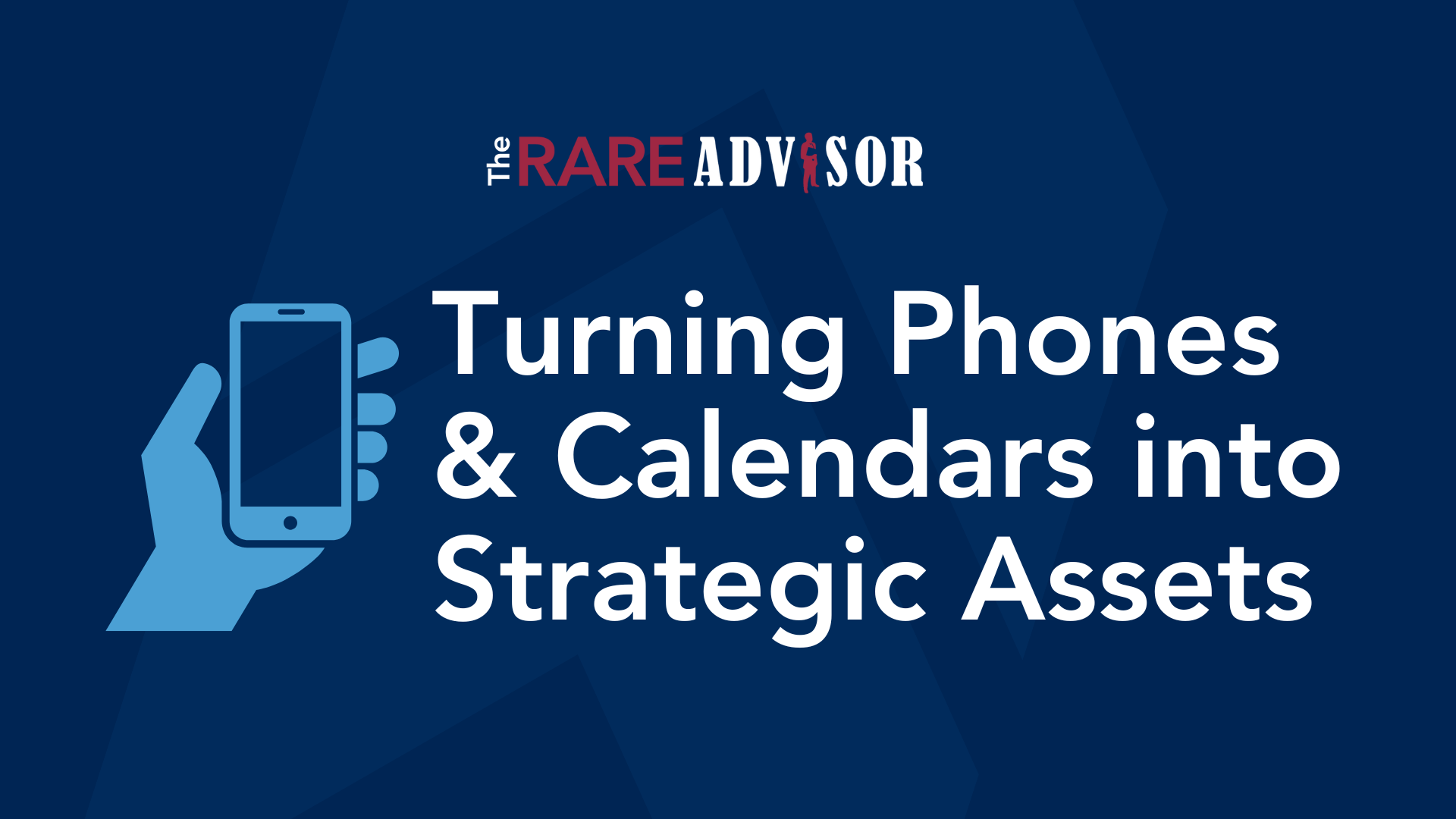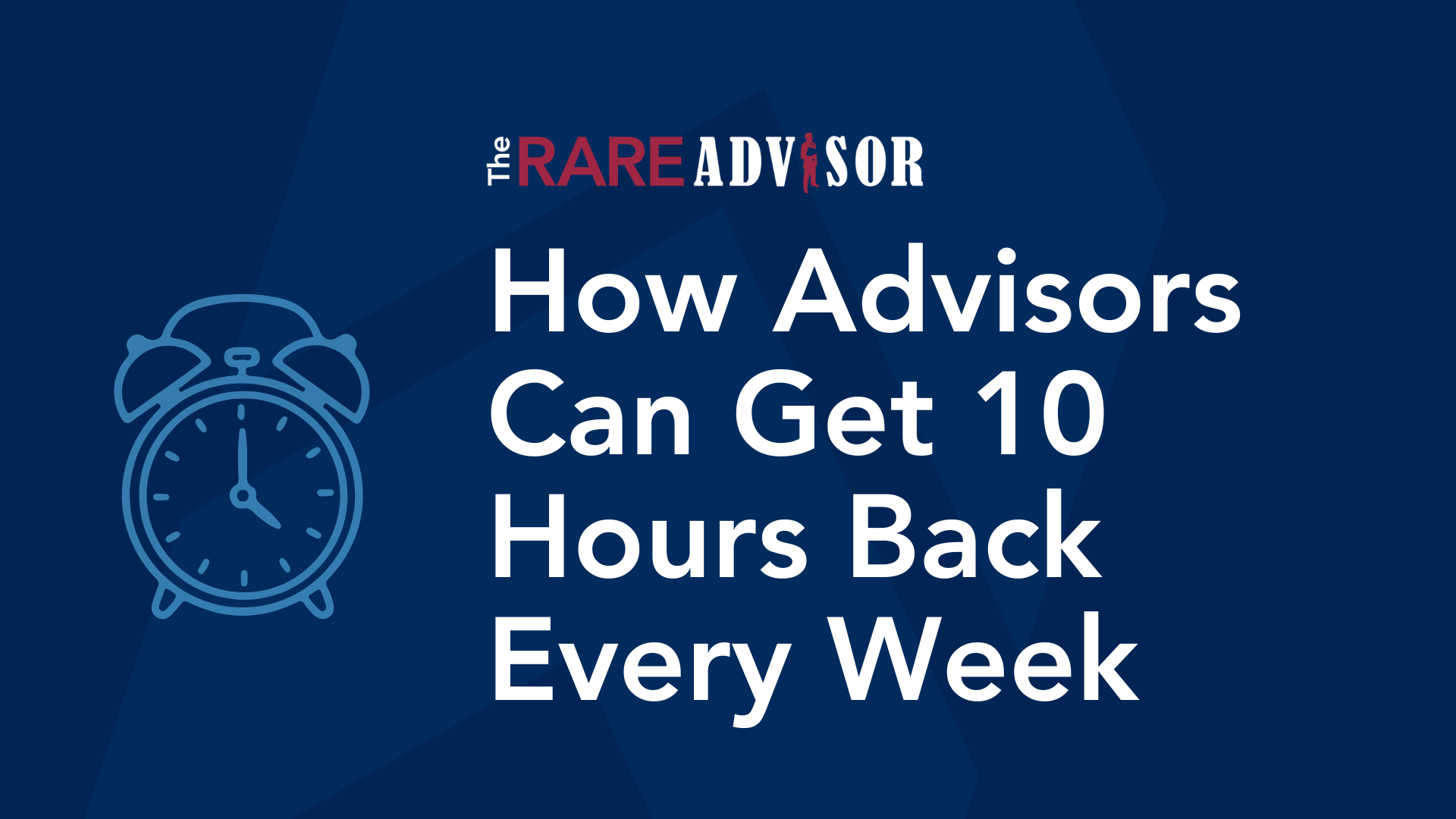3 Key Considerations for Financial Advisors Hiring Support Roles

Financial advisors often debate whether or not they should hire someone to work inside of their practice. This typically comes up because they realize just how much time they're spending on something they're not passionate about - be it calendar management, file management, marketing, or the never-ending paperwork.
I've been hired in support positions by several different financial advisors over the course of my career, including some freelancing work, and now I am regularly supporting dozens of financial advisors at a time in my role (I help with marketing for financial advisors and encourage the use of several digital tools that USA Financial's technology and marketing teams run). Through all my experiences, I can tell you that there are three essential things a financial advisor needs to think about as it relates to hiring a key support team member.
Hire the right position.
Before posting a job online or accepting any applications, you need to make sure you're hiring for the right responsibility transfer. Do you need a next generation / junior advisor, temp worker, freelancer, niche expert, or an administrator? What your pain points are and where your time is being burned by things you don't specialize in (or don't enjoy) are vital to understand before you onboard anyone, because there are many types of hires you can make and positions you could fill.
Get them what they need.
Odds are you were not trained to be a manager or HR… but in a small practice you are both! If you're going to hire someone, you're taking some responsibility for their workplace wellbeing: Give them the pay and hours you promised, train them or find tools/resources/teams they can lean on to get what they need to succeed, and provide opportunities for skill and career growth. Ideally, your broker-dealer will also provide training and help for both you and your hires.
Empower them.
In my current role I often get to see the impact of how advisors treat their key support teams, and one theme I've noticed is that empowered staff stay longer, become an extension of your brand, advocate for you, and keep your business going (before and after applications are submitted).
In my career, I've been a right-fit hire and a poor-fit hire for financial advisors. The difference came from the advisor knowing what they needed, providing what I needed, and how they empowered me (or didn't). So, trust me when I say that these considerations can make all the difference in your world and your hire's world.
Hiring the right support team member can free up your valuable time and enhance the overall experience of your practice. If you think through these things realistically and intentionally on your own or (better yet) with an advisory board or a coach, you can likely make a better decision and better hire, propelling your business to the next level.
Author Info

Kim Weber is the Marketing Project Manager at USA Financial. Since joining in 2021, she has overseen several marketing programs that help...
Related Posts

Access by Design: Turning Phones and Calendars into Strategic Assets
In this episode of The RARE Advisor, host Aaron Grady and practice management consultant Allan Oehrlein continue their discussion on time allocation by exploring what comes next: operationalizing structure across the entire advisory team. They break down why the phone is the “front door” to the firm and the calendar is the “engine room,” and how elite practices use standardized phone scripts, the strategic power of the word “unavailable,” intentional scheduling rules, and team empowerment to build consistency, capacity, and trust. Aaron and Allan outline how designed access—not unlimited access—creates scalability and a stronger client experience, while reducing reactivity, burnout, and advisor bottlenecks. They also offer practical challenges advisors can implement immediately to redesign their phone and scheduling processes in ways that elevate both team culture and enterprise value.

The Psychology Behind Your CTA: Why Prospects Don’t Click “Book a Call”
In this episode of Financial Advisor Marketing Playbook, Mark Mersman breaks down the real psychological barriers that stop prospects from clicking “book a call” on an advisor’s website—and how small language and design changes can dramatically improve conversions. You’ll learn practical, compliant fixes including softer CTA language, expectation statements, empathy‑based messaging, simplified design, and reassurance techniques that lower emotional friction. If you want a website that encourages prospects to take the first step confidently, this episode delivers actionable guidance advisors can implement immediately.

How Advisors Can Get 10 Hours Back Every Week
In this episode of The RARE Advisor, host Aaron Grady and USA Financial Pareto coach and Practice Management Consultant Allan Oehrlein dive into time allocation as a core lever for advisory success. They unpack the biggest time drains—email, unsolicited calls, and open-door interruptions—and lay out a practical framework for calendar rebalancing that starts with personal time, management time, client appointments, dedicated communications windows, “work on the business” time, and high-impact growth activities. With real-world stories showing how advisors shift from reactive days to structured weeks (and even reclaim Fridays), Aaron and Allan share easy-to-implement tips: color coding calendars, scheduling buffers, daily huddles, and call/appointment protocols. If you’re ready to audit your calendar, define your ideal week, and create structure that truly liberates your practice, this conversation is your next step.

Access by Design: Turning Phones and Calendars into Strategic Assets
In this episode of The RARE Advisor, host Aaron Grady and practice management consultant Allan Oehrlein continue their discussion on time allocation by exploring what comes next: operationalizing structure across the entire advisory team. They break down why the phone is the “front door” to the firm and the calendar is the “engine room,” and how elite practices use standardized phone scripts, the strategic power of the word “unavailable,” intentional scheduling rules, and team empowerment to build consistency, capacity, and trust. Aaron and Allan outline how designed access—not unlimited access—creates scalability and a stronger client experience, while reducing reactivity, burnout, and advisor bottlenecks. They also offer practical challenges advisors can implement immediately to redesign their phone and scheduling processes in ways that elevate both team culture and enterprise value.

The Psychology Behind Your CTA: Why Prospects Don’t Click “Book a Call”
In this episode of Financial Advisor Marketing Playbook, Mark Mersman breaks down the real psychological barriers that stop prospects from clicking “book a call” on an advisor’s website—and how small language and design changes can dramatically improve conversions. You’ll learn practical, compliant fixes including softer CTA language, expectation statements, empathy‑based messaging, simplified design, and reassurance techniques that lower emotional friction. If you want a website that encourages prospects to take the first step confidently, this episode delivers actionable guidance advisors can implement immediately.

How Advisors Can Get 10 Hours Back Every Week
In this episode of The RARE Advisor, host Aaron Grady and USA Financial Pareto coach and Practice Management Consultant Allan Oehrlein dive into time allocation as a core lever for advisory success. They unpack the biggest time drains—email, unsolicited calls, and open-door interruptions—and lay out a practical framework for calendar rebalancing that starts with personal time, management time, client appointments, dedicated communications windows, “work on the business” time, and high-impact growth activities. With real-world stories showing how advisors shift from reactive days to structured weeks (and even reclaim Fridays), Aaron and Allan share easy-to-implement tips: color coding calendars, scheduling buffers, daily huddles, and call/appointment protocols. If you’re ready to audit your calendar, define your ideal week, and create structure that truly liberates your practice, this conversation is your next step.

